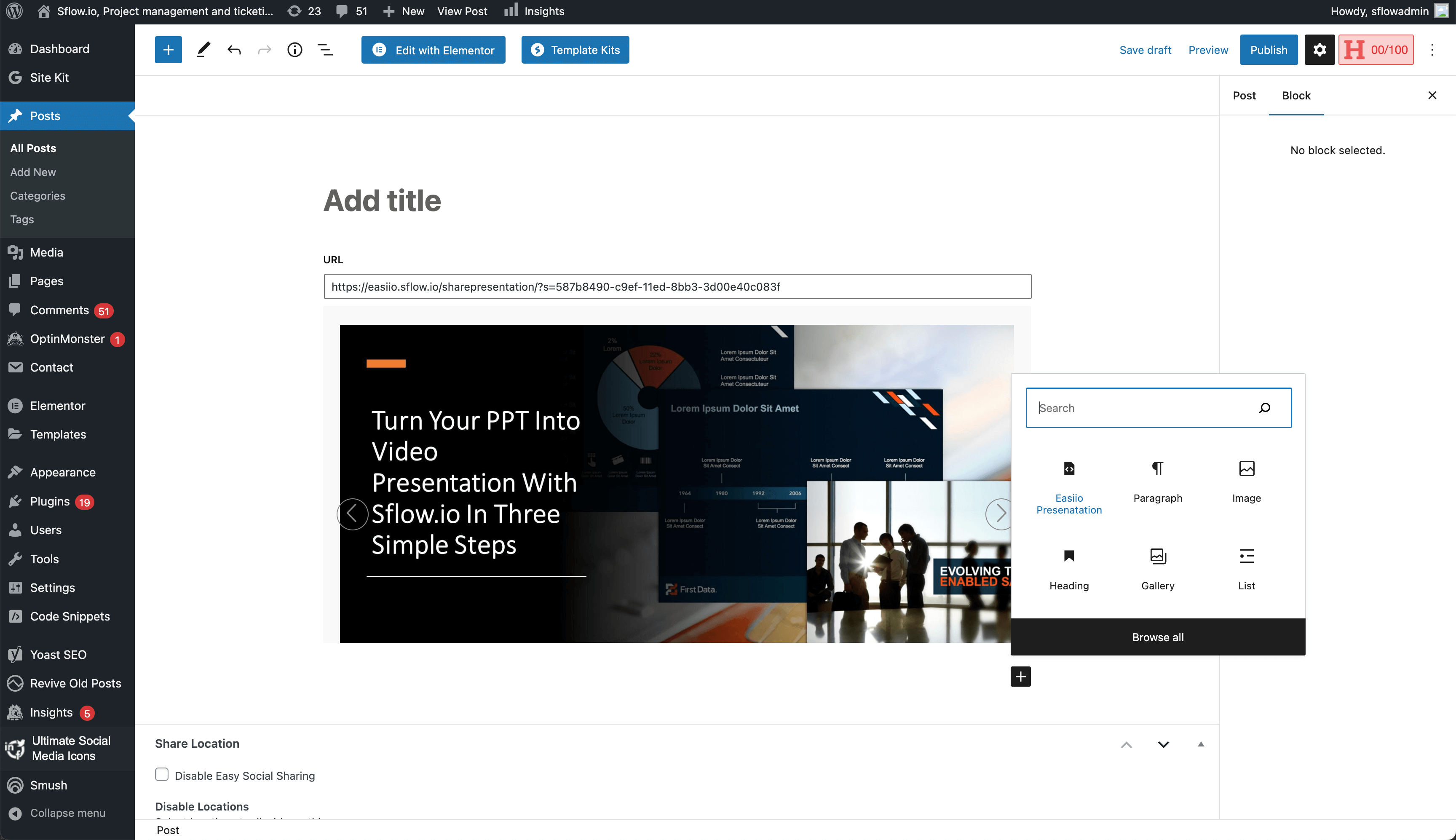

 Sflow
Sflow






WordPress Plugin
The sFlow Video Presentation WordPress Plugin lets you embed video presentations effortlessly on your WordPress website or blog, without worrying about compatibility issues.You can do a search on WordPress Plugin. It's easy to use and integrates smoothly with WordPress, making it perfect for business owners, educators, or anyone who wants to add engaging video content to their website.
 Sflow
Sflow








WordPress Plugin
The sFlow Video Presentation WordPress Plugin lets you embed video presentations effortlessly on your WordPress website or blog, without worrying about compatibility issues.You can do a search on WordPress Plugin. It's easy to use and integrates smoothly with WordPress, making it perfect for business owners, educators, or anyone who wants to add engaging video content to their website.

Welcome to our comprehensive guide on AI data analytics. This page provides valuable insights into the world of AI-powered data analytics and introduces you to Easiio, a provider of innovative AI data analytics solutions designed to improve business efficiency.


Generative AI for data analytics refers to the use of artificial intelligence algorithms that can generate new data based on patterns and insights learned from existing datasets. These AI models are trained to understand the underlying structure of the data and can then produce synthetic data that closely resembles the original dataset. This technology is particularly useful in scenarios where there is a need for more data to train machine learning models or to augment existing datasets for analysis. By generating new data, generative AI can help improve the accuracy and robustness of data analytics models. In summary, generative AI for data analytics is a powerful tool that can enhance the capabilities of data scientists and analysts by providing them with additional data for training and testing purposes.
Generative AI for data analytics is important because it has the ability to create new and valuable insights from large and complex datasets. By using generative models, AI systems can generate synthetic data that closely resembles real data, allowing for more accurate analysis and predictions. This technology can help businesses make better decisions, identify patterns and trends, and uncover hidden relationships within their data. Overall, generative AI for data analytics plays a crucial role in enhancing data-driven decision-making processes and driving innovation across various industries.


sFlow.io is a project management tool that leverages generative AI for data analytics. The advantages of using generative AI for data analytics with sFlow.io include:
1. Improved decision-making: Generative AI algorithms can analyze large volumes of data quickly and accurately, providing valuable insights that can help project managers make informed decisions.
2. Enhanced productivity: By automating data analysis tasks, generative AI can free up time for project teams to focus on more strategic activities, leading to increased productivity and efficiency.
3. Predictive capabilities: Generative AI can identify patterns and trends in data that may not be immediately apparent, allowing project managers to anticipate potential issues and take proactive measures to address them.


Generative AI for data analytics has a wide range of application areas across various industries. One key application area is in the field of predictive analytics, where generative AI models can be used to forecast future trends and patterns based on historical data. Another important application is in anomaly detection, where these models can identify unusual or unexpected patterns in data that may indicate potential issues or opportunities. Additionally, generative AI can be utilized in data synthesis, where it can generate new data points to augment existing datasets and improve the performance of machine learning algorithms. Overall, the application areas of generative AI for data analytics are diverse and offer significant potential for enhancing decision-making processes and driving innovation in businesses. Brief answer: Generative AI for data analytics has application areas in predictive analytics, anomaly detection, and data synthesis, offering opportunities to forecast trends, detect anomalies, and generate new data points for improved decision-making and innovation in various industries.

Allows users to ask questions and receive insights in plain language.

Forecasts future trends and scenarios based on historical data.

Presents insights in an easy-to-understand format through interactive dashboards.
By using Your Website Name,
you agree to our Cookie Policy.